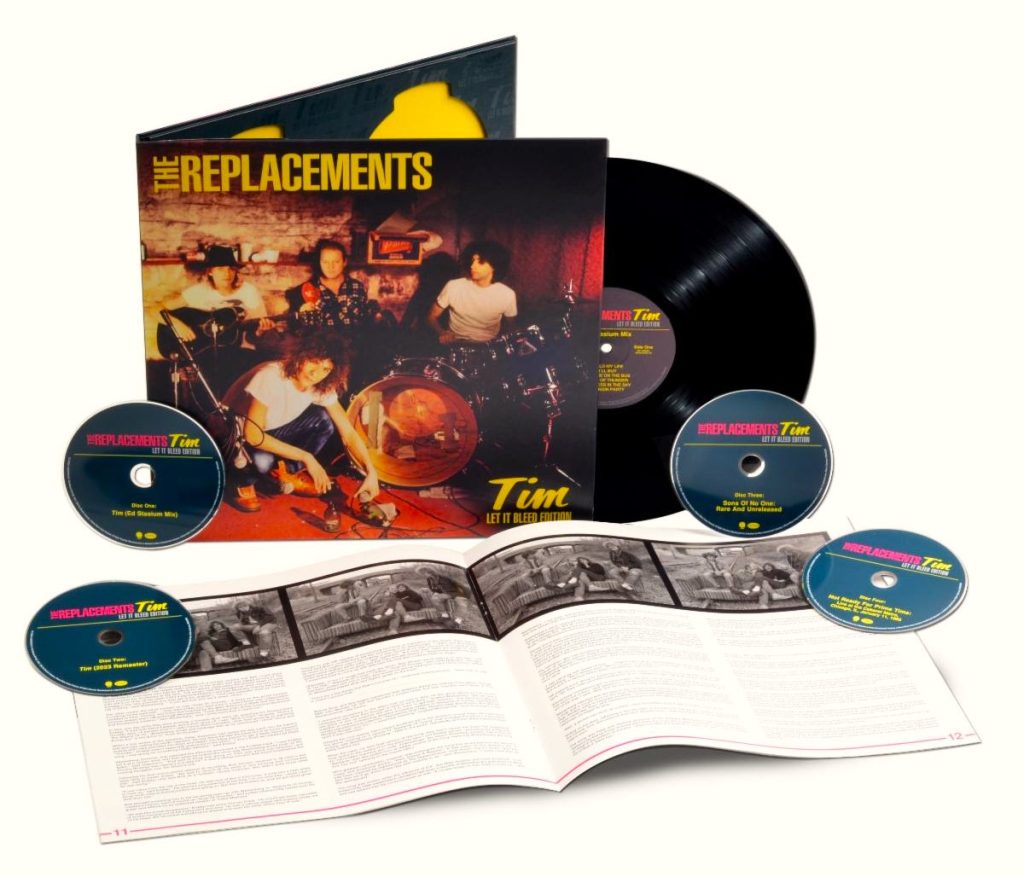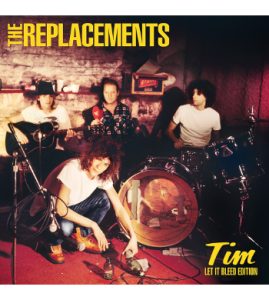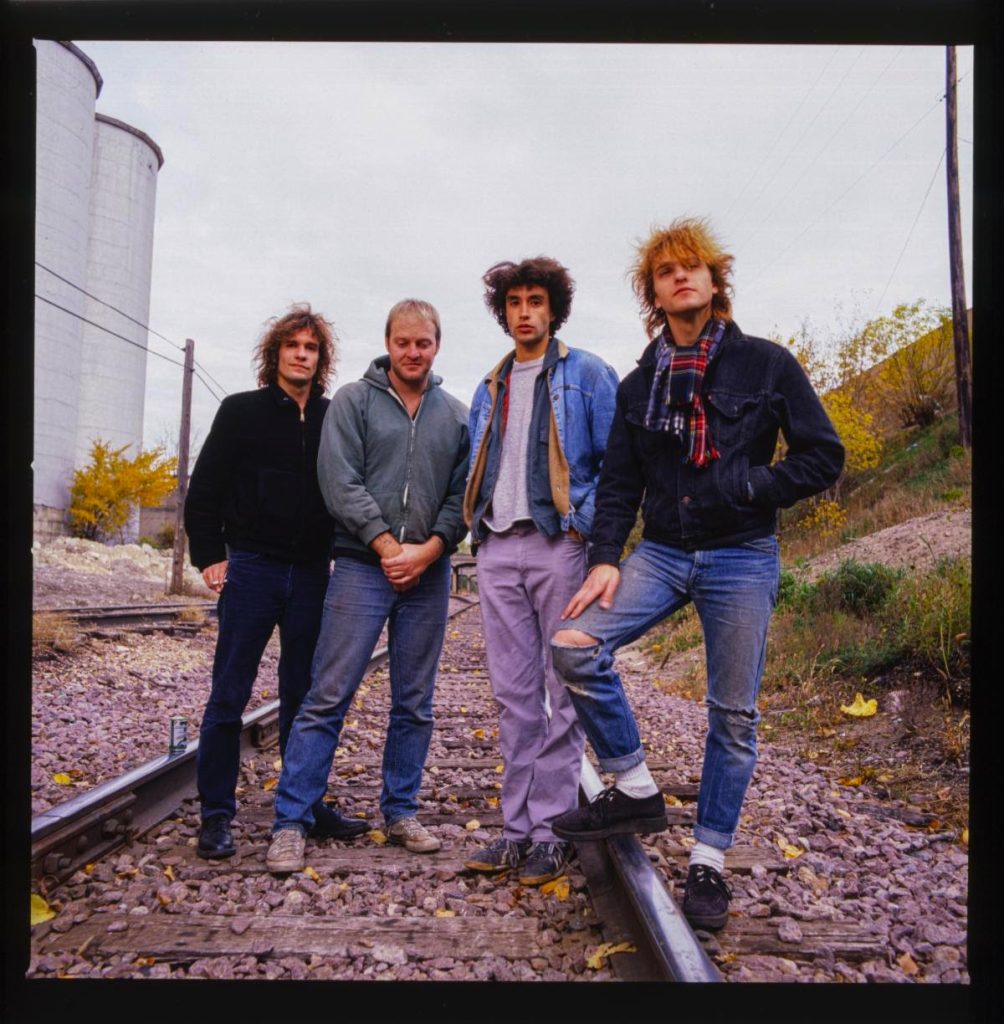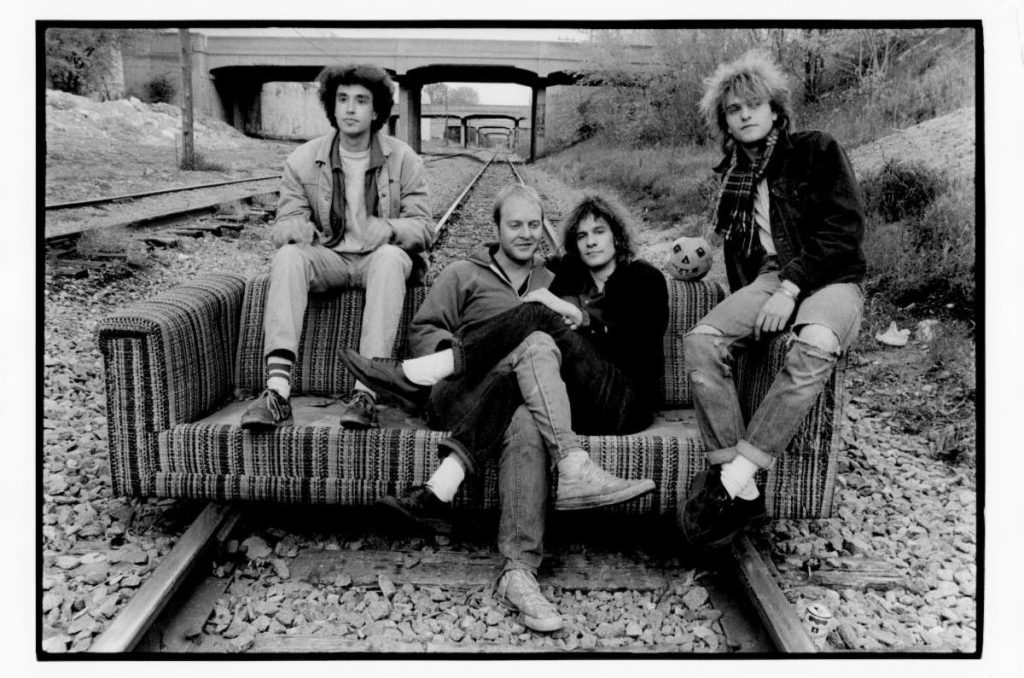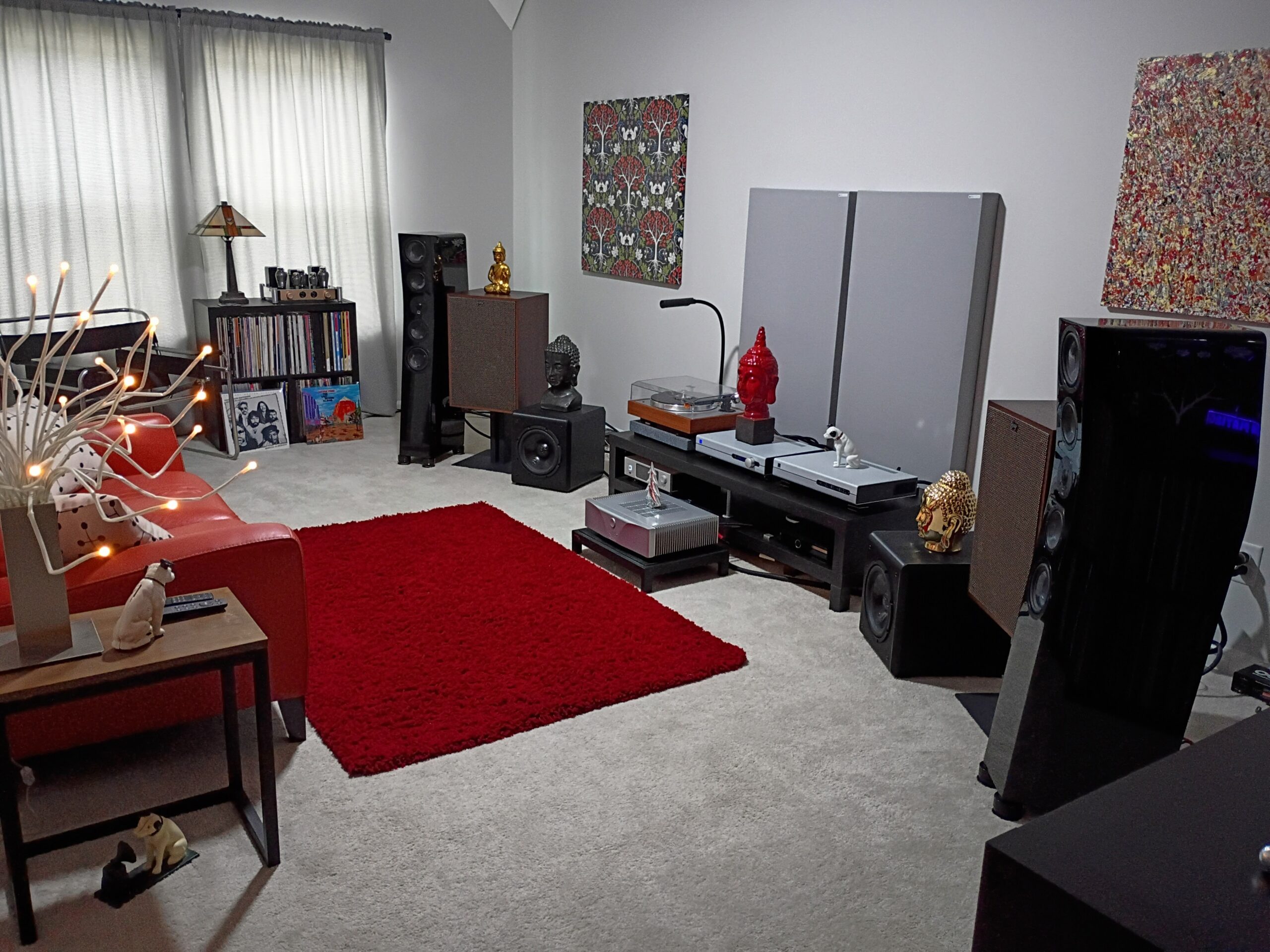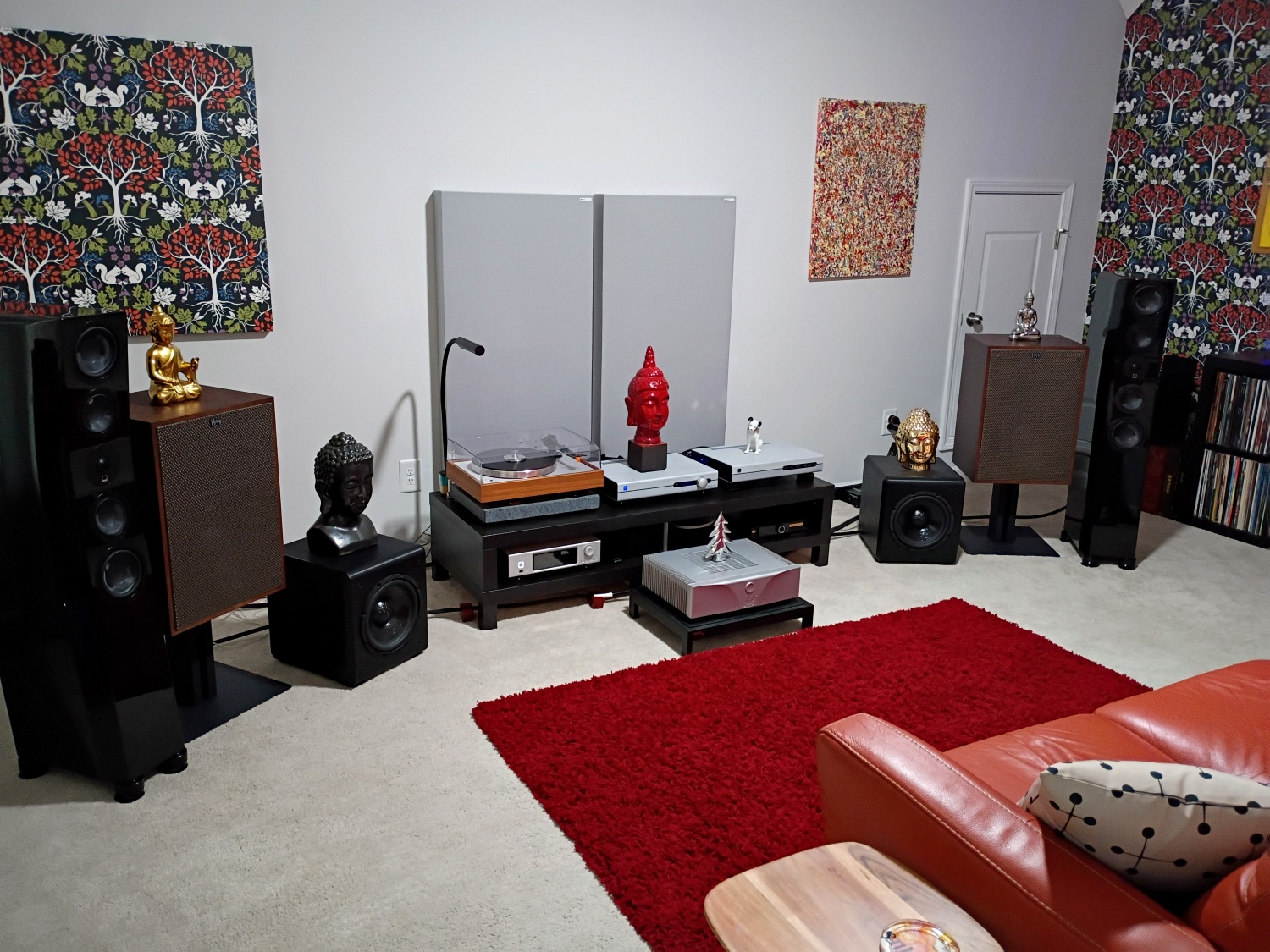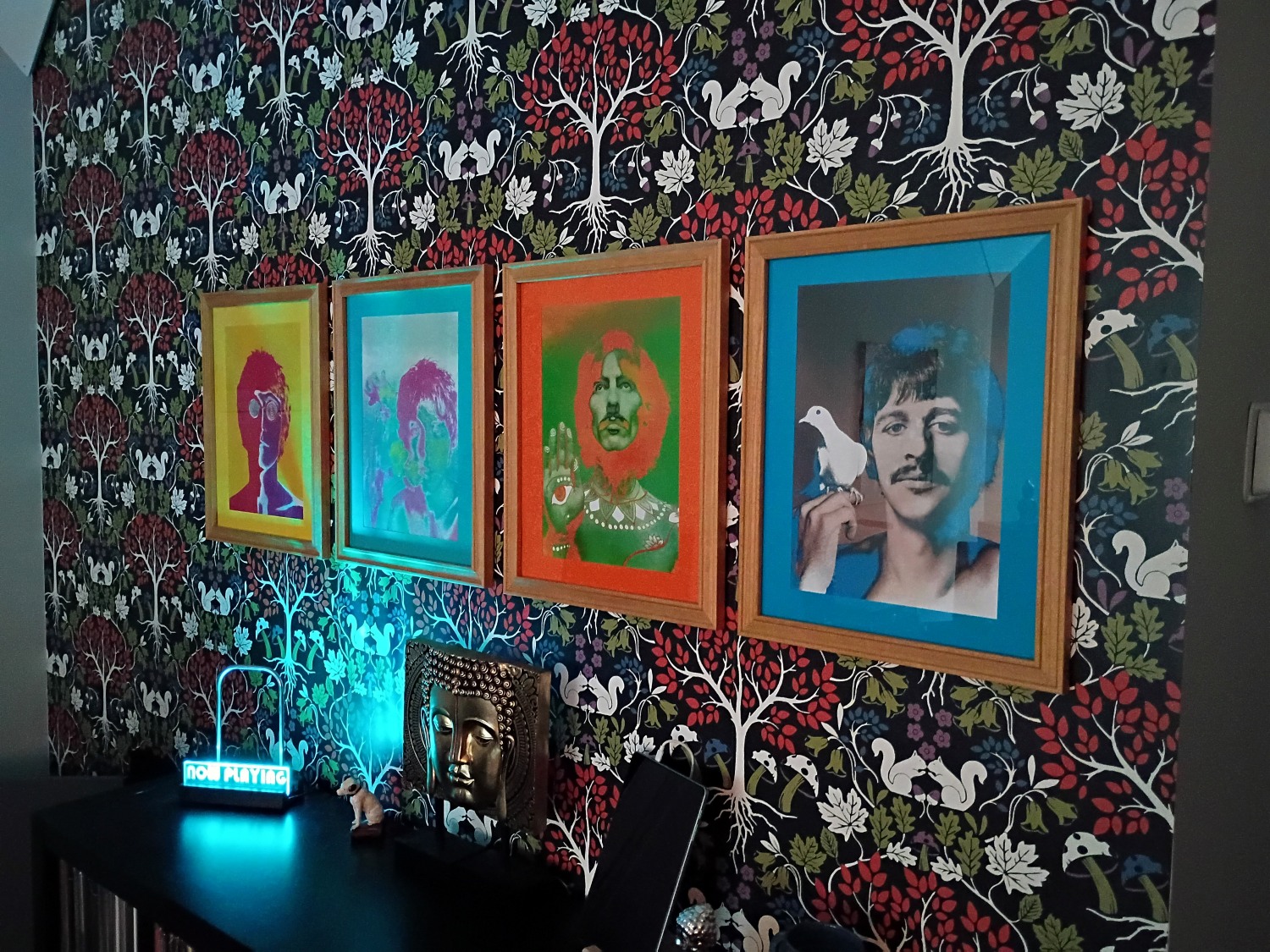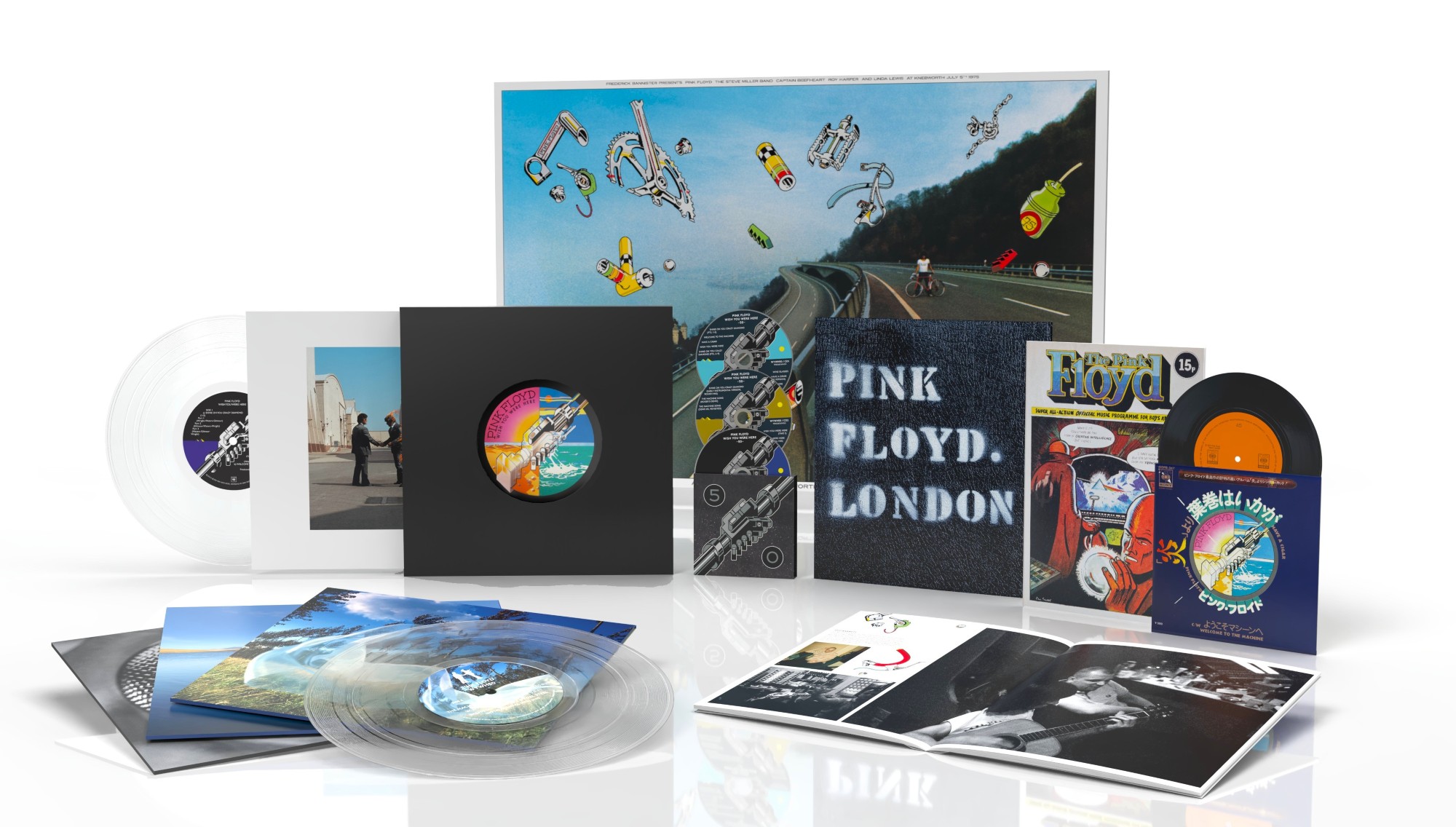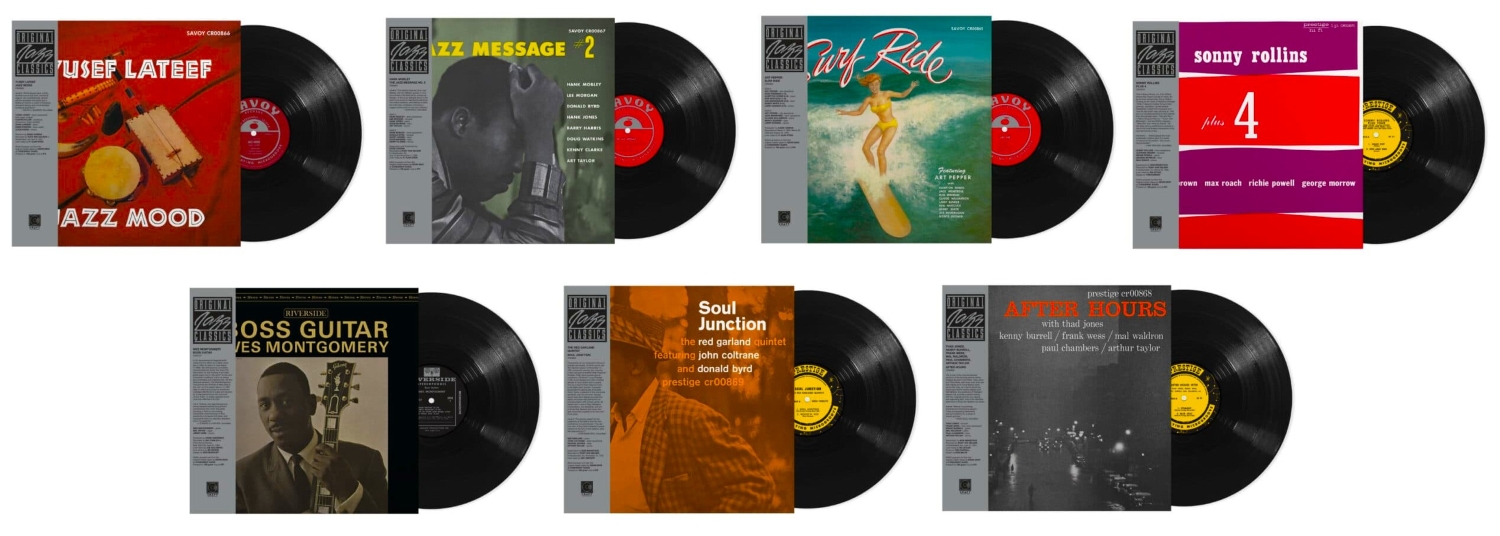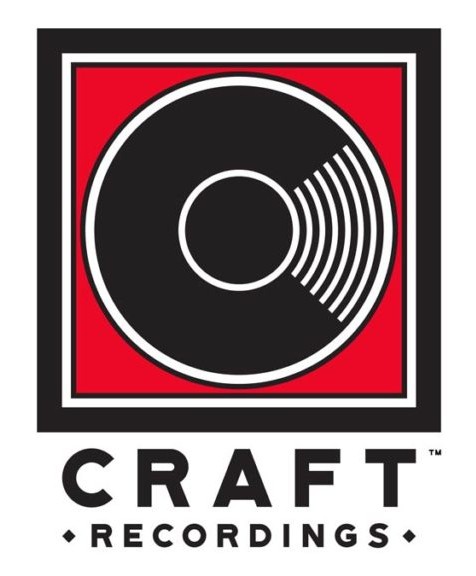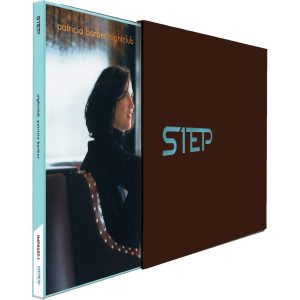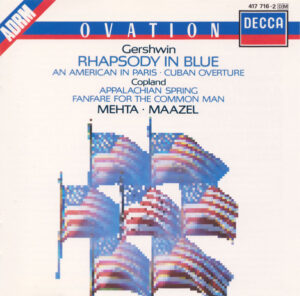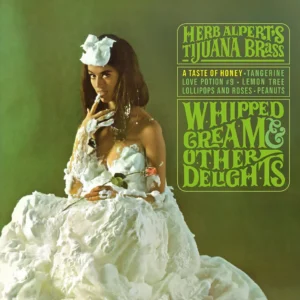Rhino Entertainment has announced an enhanced and expanded edition of alternative darlings The Replacements' fourth studio album and major label debut, 1985's Tim, which was produced by Tommy Erdelyi, aka Tommy Ramone. Which is now being made available as a 4-CD, 1-LP box set, Tim: Let It Bleed Edition. The new box highlights new remixes of the album tracks, as well as previously unreleased demos, alternate tracks, and a disc that features tracks from a live show at Chicago's Cabaret Metro Club from January, 1986. In total, the box set features 65 tracks; 50 of them are previously unreleased, making the box a real treasure trove for fans of The 'Mats¹. The box is scheduled for release on September 22; you can preorder a copy HERE.
All tracks in this expansive box have been remastered with greatly improved sound, and the disc content breaks down as follows: first up is a 180 gram LP of the studio tracks remixed by Ed Stasium. Tommy Erdelyi and Ed Stasium knew each other well, as Stasium had produced and engineered multiple Ramones albums. The first CD duplicates the Stasium-remixed tracks of the LP; the second disc features a new remaster of the Tommy Erdelyi original mix of Tim. The third disc, Sons Of No One: Rare And Unreleased, features unreleased studio tracks, demos, alternate takes, and alternate mixes of studio tracks from Tim. Finally, there's Not Ready For Prime Time: Live At The Cabaret Metro, Chicago, IL, January 11, 1986, a disc that features tracks recorded from the soundboard mix of that live show. As I previously mentioned, most of the tracks in the box have never been released, in any format.
The packaging for Tim: Let It Bleed Edition is impressively well-designed, with a new front cover photo of The Replacements in the studio; the individual disc contents are detailed on the back panel. The package features an LP-sized, tip-on style, casebound gatefold cover that contains a large pocket on the left panel that sports one of the coolest images of the band I've ever seen; it holds the 180 gram LP and a large-format, full color booklet. The multi-page booklet features new album notes by Grammy-award winning Replacements biographer Bob Mehr, and there are plenty of photos of the band from the Tim era. The right panel features a molded insert that has four die-cut sleeves that hold the CDs; it's actually one of the better variations of this sort of disc holder I've seen on recent box sets. The entire panel has the Tim: Let It Bleed Edition logo type stepped and repeated across the panel; it's varnished and knocked out of the background and is graphically and visually very striking. The LP comes encased in a black paper inner sleeve with a rice-paper liner to protect the disc from scratches; the LP was pressed in Germany, though I have no information by whom. Actually, the entire package was manufactured in Germany, CDs and all; for die hard fans and completists, first and foremost, there's a ton of unheard music, but there's also the large format artwork to go completely gaga over!
The Replacements, Tim: Let It Bleed Edition. (4) CDs, (1) 180 gram LP, $89.98 MSRP.
The Replacements had developed a fiery reputation and rabid cult following for their raucous live shows and a trio of raw-edged, but critically praised albums for Minneapolis-based Twin/Tone Records. The band featured Paul Westerberg on guitar and lead vocals; he also served as the band's principal composer and lyricist. Bob Stinson was the group's lead guitarist, his brother Tommy Stinson was the band's bassist, and Chris Mars played drums. Despite being a regional sensation, sales of the 'Mats three Twin/Tone albums remained poor, and the band members were essentially broke, working day jobs to support themselves. Complicating matters, Twin/Tone had a poor distribution network, and the label wasn't being reliably compensated for the band's album sales, which prevented them from spending money to properly promote the band.
Twin/Tone helped them set up showcases with major labels; but The Replacements had a difficult time overcoming almost suicidal tendencies that would very nearly sabotage any chance they might have for success. Every member of the band drank heavily, they excessively indulged in a variety of drugs, and played many of the concerts set up for record labels in such a drunken state that they very nearly faltered onstage. Miraculously, Seymour Stein of Warner imprint Sire Records saw beyond the madness and decided to take a chance on them; he'd also been responsible for signing the Ramones to Sire, whom the 'Mats often drew comparisons to. Stein enlisted former Ramone Tommy Erdelyi to produce The Replacements' new album, Tim; the album was recorded between June and July, 1985, at Minneapolis' Nicollet Studios. Steve Fjelstad had been behind the controls of the 'Mats first three Twin/Tone albums, and he was also chosen to engineer their major label debut.
Paul Westerberg was beginning to grow tired of The Replacements' raw, punk-influenced, "harder-faster" concert style; he was ready to explore more diverse influences. Which he displayed on more ballad-oriented tunes like the album's lead single, "Kiss Me On The Bus," "Swingin Party," the Alex Chilton produced "Left Of The Dial," and the poignant "Here Comes A Regular." And the depth of his writing was reaching new levels of complexity; The Replacements were moving away from their punk roots, and closer to helping establish the alternative rock genre. But they hadn't completely abandoned the raucousness of their previous albums; guitarist Bob Stinson wasn't completely on board with the new direction, and was increasingly feeling left out of the proceedings. Westerberg helped with that, by allowing Stinson to play more rhythmically propulsive guitar parts, like those heard on the single, "Kiss Me On The Bus," "Hold My Life," "Lay It Down Clown," and "Little Mascara." But the real pleaser for fans of the old style 'Mats was the anthemic "Bastards Of Young," which quickly became the war cry of a generation of Replacements fans. Tommy Erdelyi mixed the completed record, and it was released to serious critical acclaim on September 18, 1985.
Despite getting on well with Tommy Erdelyi in the studio, the band—and Paul Westerberg in particular—weren't particularly satisfied with the final sound of Tim. Still, they toured in support of the album, even playing a couple of songs, "Kiss Me On The Bus" and "Bastards Of Young" on a disastrous, drunken appearance on Saturday Night Live. That got them banned from future appearances on SNL, and Bob Stinson's drinking, drug use, and erratic playing onstage ended up with him parting ways with The Replacements in August, 1986. It was unclear whether he quit over creative differences in the band's direction, or was fired, but Tim proved to be the closing act for the band's original incarnation.
Use and Listening tests
Click on my name in the header to see the selection of equipment I employed to evaluate the contents of Tim: Let It Bleed Edition. While listening to the LP, I used the PrimaLuna EVO 300 tube integrated amplifier, playing through the KLH Model Five loudspeakers. The turntable for this session was the ProJect Classic EVO that's fitted with a Hana SL moving coil cartridge. The Hana SL tracked the LP perfectly, and the sound quality was superb, with very little surface or groove noise of any kind. The LP was perfectly flat with surfaces that were bright and glossy; playback of the Ed Stasium mix featured exceptionally quiet backgrounds, and the music literally jumped from the speakers. I'm really familiar with this music, and I didn't remember it sounding anywhere nearly this good on my catalog Sire CD issue.
I played the content of the four CDs on my digital system; prior to starting playback, I ripped the discs to my music server, and all playback was done through my network-connected Euphony digital server/streaming system. The digital signal was then presented to the Gustard X26 Pro Digital to Analog Converter that's paired with a Gustard C18 external clock unit. That signal was passed via the DAC's balanced outputs to a Topping A90 Discrete Preamplifier, which in turn fed the Naiu Labs Ella amplifier, which then supplied the signal to my Magneplanar LRS+ loudspeakers and REL subwoofer. The digital processing of this system is miles beyond the kind of pedestrian sound that one would typically get from a stand alone CD player.
First of all, I played my ripped original Sire CD of Tim from my digital library; it had been a hot minute since I'd given it a serious listen, and I immediately tuned in to why Paul Westerberg was so disappointed in the sound of the album at the time of its release. The Sire CD is harsh, flat, congested, and musically almost unbearable—it displays all the hallmarks of really bad digital audio, even when played on a superior digital system. Listening next to the Ed Stasium remix of the studio tracks was as revelatory as hearing the LP; the sound quality shocked me with its goodness! I would never have believed that the Sire CD and the Stasium remix were taken from the same base tapes as the catalog version—which were, frankly, really awful! The remastered Tommy Erdalyi version was just the slightest shade behind the Stasium remix in terms of sonics; of course, the remixed version had a slightly differing musical content, but I couldn't bring myself to terms with the remaster sounding sooooo very much better than the original. The difference was literally night and day!
The sound quality of the remaining two discs that feature the bulk of the previously unreleased studio/alternate/demo tracks and the live recordings from the Chicago date (that preceded the disastrous SNL appearance by exactly one week) are highly variable. They've all been remastered, but as I listened to the Rare And Unreleased disc, the sound quality varied significantly from studio quality tracks and alternate takes almost on par with the Stasium remixes to very rough-around-the-edge demos. The live disc was recorded from a mixing panel location feed at the Chicago club, and it sounds it; there's very little consistency of sound, but it literally serves as a clinic of the 'Mats concert sound and performance style from the period. Taken in the context of a historical recording, the sound quality is quite serviceable, and fans will love having access to a glimpse of this important period for the band.
Conclusion
Despite never having experienced the kind of broad-based commercial success they deserved, The Replacements are nonetheless one of the most important post-punk and alternative bands ever. Bob Mehr, the co-producer of this box, documented their triumphs and troubles in his New York Times bestseller Trouble Boys: The True Story Of The Replacements, and he further expounds upon their legendary brilliance and seemingly self-destructive aversion to meeting record company expectations in his superb liner notes here. Of course, their rebelliousness was one of the hallmarks that so endeared them to their legion of fans.
Tim: Let It Bleed Edition is undoubtedly one of the best new releases of the year, if for no other reason than its superb sound quality. Which literally shocked me with the improvement it offered over the catalog issue: the Ed Stasium remix of Tim is one of the best-sounding alternative rock records I've ever heard, bar none! Rhino has done an outstanding job with this box, which raises the bar for retrospective reissues. Thanks to everyone at Shore Fire Media for their assistance with this project; this excellent new set comes with my very highest recommendation!
Rhino Entertainment
All images provided by Rhino Entertainment and Shore Fire Media.
¹ Among hardcore fans of the band, "The Placemats" was an inevitable mispronunciation of "The Replacements," and was speedily and lovingly truncated to simply the "The 'Mats."




